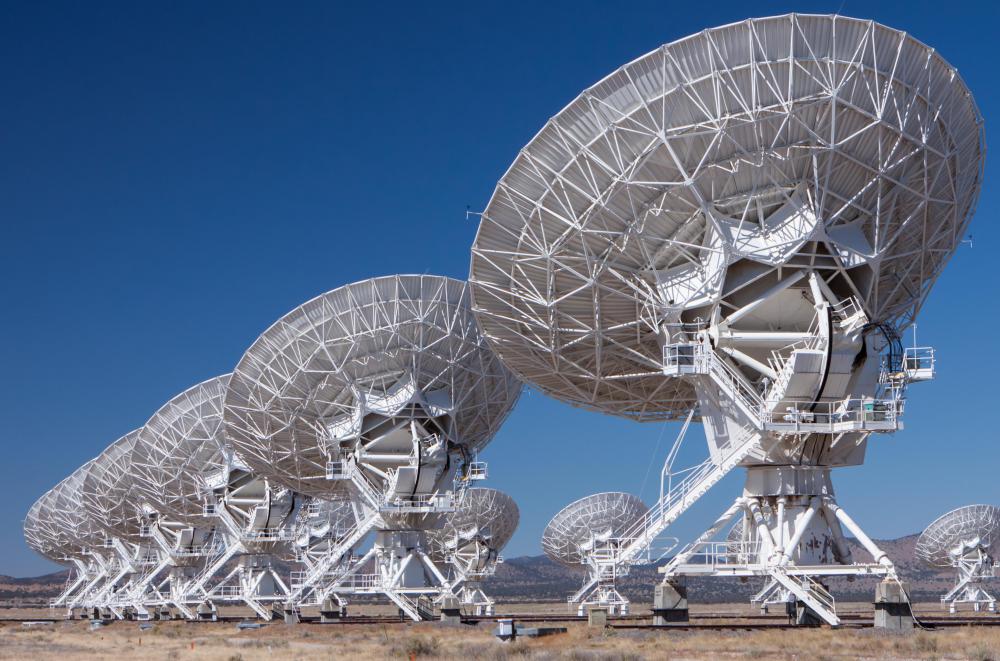At PracticalAdultInsights, we're committed to delivering accurate, trustworthy information. Our expert-authored content is rigorously fact-checked and sourced from credible authorities. Discover how we uphold the highest standards in providing you with reliable knowledge.
What does an Astrophysicist do?
An astrophysicist is a scientist who researches the principles of light, motion, and natural forces as they pertain to the universe at large. He or she engages in theoretical physics studies in an attempt to learn more about the underlying properties of the cosmos. Many specialize in studying a particular phenomenon or theory, such as black holes, the development and extinction of stars, relativity and motion, or the origin of the universe.
Almost every past and present culture has attempted to explain the nature of the cosmos and determine how we came into existence. Astrophysicists incorporate their extensive knowledge of mathematical and physical properties with observable characteristics and to form modern explanations. Scientists frequently dedicate long, tiring hours to conducting trial and error mathematics and reviewing the work performed by their colleagues. So much is unknown or uncertain about the universe that it is not uncommon for a scientist to spend the majority of his or her career investigating a single astronomical circumstance. For example, many scientists have dedicated decades of their professional lives to forming the Big Bang theory, an concept that is now strongly supported yet still not fully understood.

Once an astrophysicist discovers an important trait or forms a valid theoretical explanation, he or she typically presents such information in a formal scientific paper. To become widely accepted, a theory is often subjected to strict peer reviews and tested rigorously by scientific committees. When possible, new theoretical principles or formulas are applied in practical laboratory tests to further support their validity.

To become an astrophysicist, a person must typically receive a PhD in astrophysics or astronomy from an accredited university. After completing educational requirements, he or she may assume a fellowship or internship position at a research institution or university. Post-doctoral research programs, which usually last one to three years, allows the individual to gain valuable firsthand experience about laboratory and theoretical research techniques by assisting and observing established scientists. Interns and fellows learn how to conduct research, apply for grants, and write scientific papers.

Most scientists in this field conduct independent research at home or in a private research institution. Some choose to become professors at colleges and universities, where they teach mathematics, physics, and astronomy courses to the next generation of scientists. They might opt to work in a research and development laboratory at a biotechnology company, putting their advanced knowledge of motion and energy to use in practical technology applications.
AS FEATURED ON:
AS FEATURED ON:














Discussion Comments
I want to learn about the universe as much as possible. Whether this conflicts with things such as religion, etc, I don't care. All aspects (black holes, big band theory, even time travel) of this interest me. I think this is a great field and can't wait to enter it!
Can one be an astrophysicist if he has a bachelors degree in mechanical engineering? Also, how much does an astrophysicist get paid?
I'm glad I found this website. It really helped my school work. (I'm 11 by the way).
Ever since I began learning about outer space, I was intrigued. I knew that I wanted to be an astronomer. However, once I got into high school, I dropped the idea of any occupation related to space because of it is so uncommon, and would most likely be more difficult to find a job in. However, now that I am applying to universities in the next few months, I'm revisiting my childhood dream. My best subjects are math and physics, so it sounds suitable...but is it competitive? Or is it hard to find a job for? These are the nagging questions that I remain concerned over.
I'm young(10) and I'm very interested in the field. What should I look for in this field?
I am 15 and I want to be an astrophysicist. Please help get me to my aim. I am highly interested in this field.
I'm thinking of becoming a astrophysicist, but do they make a lot of money?
I'm 16, almost 17, and I have been fascinated with astronomy since I was first taught it in grade 2. I'm a thinker and this is a profession that intrigues me the most. I have basic skills, more than most, a knowledge of everything about stars. I don't know where to turn and who to ask questions so this is a good a start than any. I'm going into grade 12 and just learning the basic subjects. After I graduate what do I do?! A big thank you to anyone that can help me. My name is Michael.
@visionary--My son used to make all sorts of astronomy projects when he was young, and now he's actually studying to be an astrophysicist. It's one of those professions that you really have to love in order to be successful at it, I think, since it's just so involved. I know I couldn't do it, but he really enjoys it, and I enjoy listening to him tell me about the things he studies -- not that I understand a lot of it, but still, it's interesting!
I think that this is an absolutely fascinating field, but I can see why it's controversial, and even scary to some people. I know some people who actually hate learning about this stuff because they're afraid that they'll find something to be incompatible with the way they view the world, but for me, I'm just interested to see what's out there. A lot of it is extremely esoteric and hard to understand (unless you're in that field, of course), but I still try to learn as much about it as I can. I'd never make a good astrophysicist, but I do make a good interested onlooker!
Post your comments